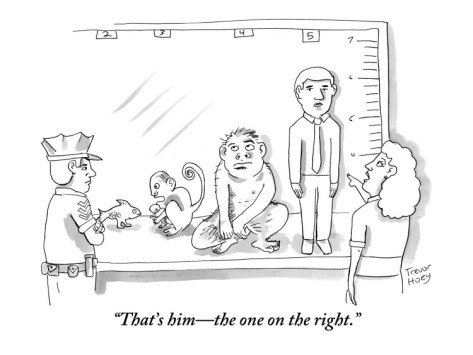Vlad Chituc, an atheist who blogs at NonProphet Status, thinks I was right on in my critique of humanist groups yesterday. He says, as an atheist activist, he’s run into similar problems.
I’ve tried to pin down specific moral principles of Humanism from various people, and all I ever seem to get is some vague gesturing towards Reason or Compassion, or some philosophical terms like Naturalism and Consequentialism. But that gives me nothing specific.
If I have a conversation with someone who subscribes to some kind of preference Utilitarianism inspired by Peter Singer, then I have a decent and somewhat accurate picture of a good number of her philosophical commitments: there are true moral claims, she tries to maximize the good with her actions, what’s good is the satisfaction of preferences, there is some kind of focus on animal welfare because preferences are not unique to humans, we ought to give more money to aid the global poor, so on and so on.
But James Croft, a blogger in Patheos’s Atheist channel, thinks we’re both way off base.
[R]esponsible scholarship demands a more curious and engaged stance than Libresco’s post displays. There are, easily available, full, complex, and rigorous explorations of the Humanist worldview which, as a commentator on the topic, I believe it is reasonable to expect she should at least know about, if not know well. Humanism is not just a bumper sticker or a dictionary entry: it is a coherent and evolving tradition of thought and practice which finds expression in multiple cultures and time periods throughout human history. While much of what is available is quite lazy – just as much Christian messaging is lazy – not all of it is lazy. There are rigorous Humanisms, and they aren’t that tough to discover. Not all Humanisms are “diffuse and bland”.
Humanism certainly deserves a lot more clarity and attention to detail than its proponents often give it. But it also deserves the full respect and attention of those who reject it. And, in that spirit, I intend to offer in the coming days a series of resources for those interested in a more robust defense of the Humanist worldview. For the moment, though, a little more engagement on the part of our critics would be a good place to begin.
First, I should say that my readings in Humanism aren’t limited to the “What is Secular Humanism?” page from the Council for Secular Humanism’s website that I blockquoted back in my old, pre-conversion More Beating Up on Lazy Humanism post. It was just a shorter, easily accessible distillation of the “We’re in favor of goodness!” I’d heard from plenty of humanists. Sam Harris’s The Moral Landscape ends up falling into this mold by the end of the book, by the way. But I’ve had a pretty extensive tour through philosophy in Directed Studies.
One reason I don’t know who Croft thinks I’m missing is that there’s not a Humanist canon. There are plenty of atheist (or adopted from long ago Deist) authors that humanists read, but they’re not necessarily in dialogue with each other or collaborating from a base of shared precepts. People who love Peter Singer don’t necessarily have much in common with acolytes of John Dewey.
The second reason I don’t know who Croft thinks I’m missing is, well, because he didn’t list anyone. I look forward to his big project pulling together resources to defend Humanism, but I don’t need a big defense of its truth to start out with. I just need a better idea of what content he plans to eventually defend. Right now, I can’t make a two cows joke about humanism, because it’s not sufficiently bounded in conceptspace.
Right now, knowing someone is a humanist doesn’t have much predictive power for me. I don’t feel like I can make more accurate guesses about their philosophical or ethical beliefs, I don’t anticipate the advice they might give me, I don’t know who to pair them with to arrange an interesting debate, and, as I noted above, I can’t even come up with a funny caricature of their position.
Words are supposed to be the labels we put on clumpy parts of reality. But I just don’t know what partitions humanists away from everyone else except their willingness to use the word “Humanist” as an identity. Before he does a big Humanist apologetic, Croft could help me a lot by just stating some “[Leah] believes [moral laws exist in a similar way to mathmatical theorems, uncreated by humans] but Humanists believe Y” or “Humanists think that when confronted with an ethical problem, it’s important to think about N first, unlike [Virtue Ethicists] who think you should primarily consider [the kind of person taking the action would make you].” I need him to differentiate his group before I know enough to ask questions so he can defend it.
Croft, I’ll make you a deal. If you show me your philosophy, I’ll show you mine. Let’s both write up 500-750 words explaining what we believe about ethics and metaphysics. That’s way to short to defend our beliefs, so no fair complaining about that, commenters. It’s also too short to cover everything we think, so the goal is really just making it as easy as possible to tell us apart as compactly as possible. We won’t settle which (or both of us) are in error, we’ll just have made our ideas specific enough to have a chance of being wrong. You in?













